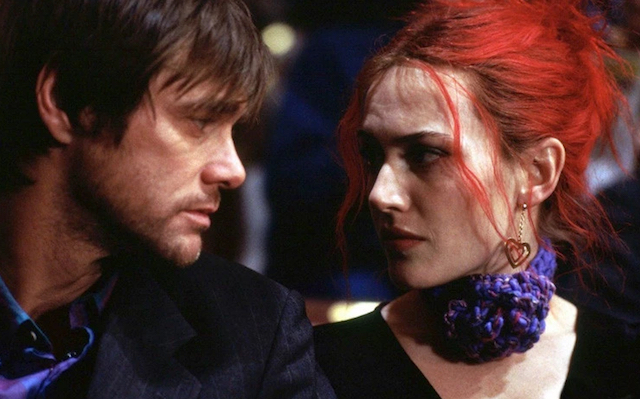**If you’ve never seen this film: spoilers below!
.
We have probably all imagined what it would be like to go back and change things.
Life is happening so quickly, and it is all happening at once. So many of our life decisions are made on the fly. We choose a career. We fall in love. We fall apart. It is all such a whirlwind of experience; a cyclone of ordeals, events, and occurrences that are endlessly fluctuating in a perpetual state of change.
The point is that sometimes we f*ck up. We do the right thing at the wrong time, or the wrong thing and the right time. (God forbid we do the wrong thing at the wrong time.) And because of that, there seems to be this human propensity to want to go back and do things over.
“Eternal Sunshine of the Spotless Mind” is perhaps the foremost indie romance film of this generation—or of any generation for that matter. The film presents a man who has opted to erase his memory in order to get over a bad breakup, but in the process finds that he signed up for more than he bargained for.
The film puts forth one of the most essential questions of the human experience: is love worth the trouble?
Is it worthwhile to fall madly in love with someone when there is always the possibility (perhaps even the certainty) that it could end in profound heartache? Is Cupid’s arrow worth the sting?
The protagonist (played by Jim Carrey) did not think so, at least not early on in the film. The pain of his loss was too much, so he wanted to get rid of any memory of her from his life.
The most important moment of the film for me happened in the midst of the erasing process, when he realizes that the beautiful experiences that they shared together were not disposable, and he tries to stop them from being wiped away.
This is key. In choosing to keep the memories, he is deciding that love is worth the pain that comes along with it. He is choosing love over fear; choosing the love of life over the fear of loss.
To me, life is like a beautiful tragedy. It is the relationship between love and suffering that defines the human condition.
There can be no beauty without tragedy, just as there can be no love without suffering. It is the fleeting nature of being human that makes it so special. It is the prospect of death that makes life such a wonderful adventure.
Naturally, we want to avoid pain and pursue beauty—but ultimately, we cannot have one without the other. At a certain point in life (for me, this happened in early adulthood), we must decide whether or not the chaos of human life is worth the trouble—whether it is worthwhile to pursue love and beauty wholeheartedly, knowing that suffering and tragedy are always looming just around the corner.
We cannot avoid loss. We cannot stop tragedy. So, we might as well embrace the whole mess and do our best to live fully, in spite of the inevitable despair.
Suffering deepens us. The more suffering we experience, the more capable we become of experiencing love and joy—but only if we do not resist the pain. This has been my experience, as the suffering that has come along with my severe chronic illness over the past few years has opened up doors inside myself that I could not have possibly imagined before. As long as I don’t run away from the pain, it can only really deepen me; and the deeper we become, then the more capable we are of feeling all things.
I was wrapped up in a relationship recently that in the end caused me a great deal of pain—but if I was asked to go back and erase it, I wouldn’t even dream of it.
Love is always worth the trouble to me. I would always choose to love and suffer, rather than hide away from the fullness of human experience.
The protagonist in this film chooses to accept the pain of loss—in the name of love—and this is why “Eternal Sunshine of the Spotless Mind” is such a special film. It reminds us that love is all, and that suffering is a natural part of life.
~
https://www.youtube.com/watch?v=ErpRE5e1SlI
~
Relephant:
This is What We are Born to Do.
~
Author: Samuel Kronen
Image: film still
Editor: Yoli Ramazzina
Copy Editor: Callie Rushton
Social Editor: Waylon Lewis









Read 15 comments and reply